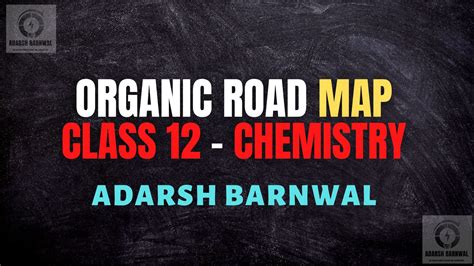Introduction

Organic chemistry, considered the “backbone of life,” delves into the fascinating world of carbon-based compounds that form the building blocks of everything living and non-living on Earth. It is an integral part of chemistry and other scientific disciplines, such as biology, medicine, and materials science. To excel in organic chemistry, a strategic approach is essential.
How to Get Ahead in Organic Chemistry
1. Grasp the Fundamentals
- Build a solid foundation in general chemistry, especially in electronic structure and bonding.
- Understand the hybridization of carbon and the formation of single, double, and triple bonds.
- Familiarize yourself with the basic functional groups and their properties.
2. Practice Problem-Solving
- Solve as many problems as possible from textbooks, online resources, and past exams.
- Analyze reaction mechanisms and identify key intermediates.
- Develop a systematic approach to solving synthesis and reaction problems.
3. Utilize Study Tools
- Create flashcards for memorizing key concepts and reactions.
- Use online simulations and virtual labs to visualize molecular structures.
- Join study groups or tutor others to reinforce your understanding.
4. Engage with the Subject
- Read scientific articles and attend lectures to expand your knowledge beyond the textbook.
- Participate in research projects and present your findings to develop your analytical and communication skills.
- Explore the applications of organic chemistry in various fields.
5. Seek Help When Needed
- Consult with your instructor or teaching assistant for clarification and guidance.
- Join online forums or social media groups to connect with other students and professionals.
- Utilize university resources, such as tutoring centers and writing labs.
Common Mistakes to Avoid
- Overreliance on memorization: Organic chemistry requires a deep understanding of concepts, not just rote memorization.
- Lack of practice: Problem-solving is crucial for developing problem-identifying and critical-thinking skills.
- Ignoring mechanisms: Understanding reaction mechanisms is essential for predicting reactivity and designing synthesis strategies.
- Neglecting structure-activity relationships: Correlation between molecular structure and properties is crucial in understanding organic molecules.
- Poor study habits: Consistent effort, efficient study techniques, and time management are vital for success.
Strategies for Success
1. Set Realistic Goals:
- Divide the course material into manageable chunks.
- Allocate dedicated study time and stick to it.
- Set achievable goals and track your progress.
2. Active Learning:
- Engage with the material by taking notes, drawing structures, and discussing concepts.
- Participate actively in class and ask questions.
- Form study groups and share knowledge with others.
3. Multimodal Learning:
- Utilize different learning modalities such as reading, writing, solving problems, and hands-on activities.
- Combine visual, auditory, and kinesthetic approaches to enhance understanding.
- Create concept maps and diagrams to connect ideas.
4. Critical Thinking:
- Analyze problems thoroughly before attempting solutions.
- Identify key information and develop logical solutions.
- Evaluate your results and reflect on the thought process.
5. Time Management:
- Prioritize tasks and allocate time effectively.
- Use productivity tools such as planners, calendars, and to-do lists.
- Minimize distractions and create a conducive study environment.
FAQs
-
What are the most important concepts in organic chemistry?
- Hybridization of carbon
- Functional groups
- Reaction mechanisms
- Structure-activity relationships
-
How can I improve my problem-solving skills?
- Practice solving various types of problems
- Analyze reaction mechanisms and identify key intermediates
- Seek guidance from instructors or peers
-
What are the career prospects for organic chemists?
- Research and development in pharmaceuticals, biotechnology, materials science, and more
- Analytical and testing roles in quality control, environmental monitoring, and forensics
- Teaching and education in academia and industry
-
What are some innovative applications of organic chemistry?
- Development of biocompatible materials for medical implants
- Design of sustainable and biodegradable polymers
- Creation of artificial intelligence-based drug discovery tools
-
What is the most challenging aspect of organic chemistry?
- The vast and complex body of knowledge
- The need for a comprehensive understanding of mechanisms and reactions
- The difficulty in applying concepts to solve real-world problems
-
How can I overcome the challenges in organic chemistry?
- Dedicate time and effort to consistent studying
- Seek support from instructors, peers, and online resources
- Practice problem-solving regularly and focus on understanding mechanisms
-
What are some tips for studying organic chemistry efficiently?
- Break down material into manageable chunks
- Use flashcards and diagrams to memorize key concepts
- Solve problems regularly and analyze reaction mechanisms
- Participate in study groups and discuss concepts with others
-
What is the role of technology in organic chemistry?
- Molecular modeling software visualizes structures and simulations
- AI-powered tools assist in reaction prediction and drug discovery
- Virtual reality labs provide immersive learning experiences
Conclusion
Organic chemistry is a challenging but rewarding field that opens doors to diverse career opportunities. By adopting effective study strategies, fostering a deep understanding of concepts, and utilizing available resources, you can excel in this captivating discipline. Remember, consistent effort, critical thinking, and a passion for learning are the keys to success in organic chemistry.
